

Research Impact Report

Land Acknowledgement
We offer our gratitude to the lands on which the University of Guelph campuses are situated and the Indigenous ancestors who have inhabited these lands for centuries. We recognize that our campuses are located on the lands of the Dish with One Spoon Wampum and we offer our respect to the Mississaugas of the Credit, the Delaware Nation at Moraviantown, Six Nations of the Grand River and the diverse communities of First Nations, Inuit and Métis peoples who now reside on these lands. We also recognize that our educational and research enterprises occur on Indigenous lands and we endeavour to ensure that our activities honour and respect Indigenous peoples.
Acknowledging the land we are on and Indigenous peoples’ relationship with the land is a starting point. We recognize the role business, research, and education have had, and continue to have in the systemic mistreatment and harm of Indigenous peoples, communities, cultures, and lands. In service of its motto of Business as a force for Good® the Lang School of Business and Economics strives to play a meaningful role in addressing the ongoing damage of colonization and developing a better future for all peoples. The 94 Calls to Action for Truth and Reconciliation and Bi-Naagwad | It Comes Into View, U of G’s Indigenous Initiatives Strategy provide us with opportunities to further reflect on the role we as educators and researchers can and should have towards collective action. We recognize there is significant work to be done to learn and unlearn in order to build trust, community, and partnership. Our strategic plan aims to demonstrate our commitment, as well as the need for action and provide an opportunity for the Lang community to engage in their own personal journey of reflection, reconciliation, and action.


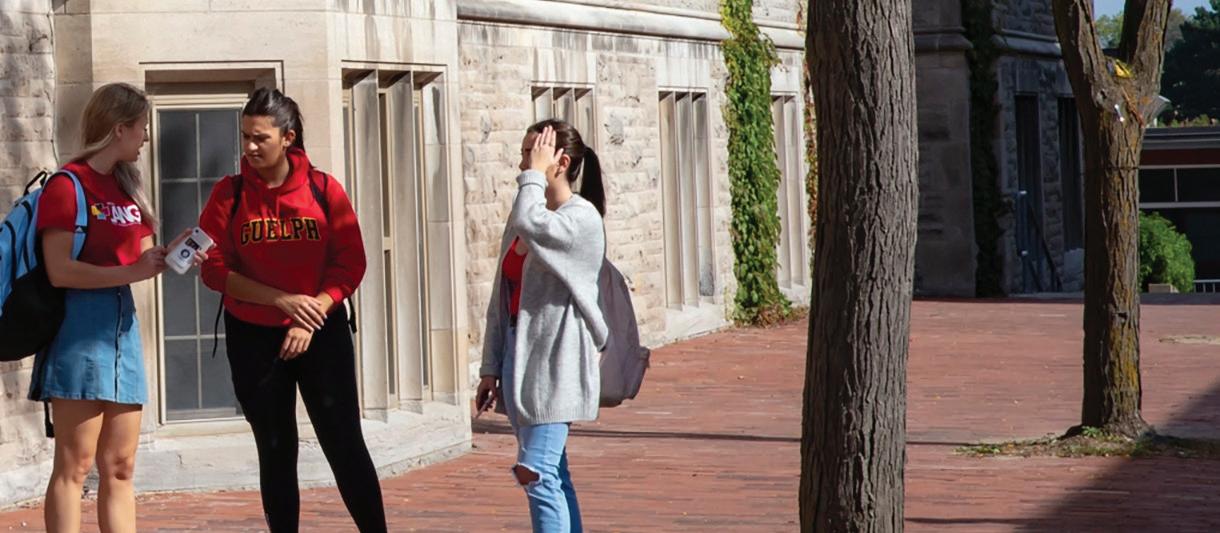


Associate Dean Research and Graduate Studies
Sara Mann
Dean Sean Lyons
Message from the Dean and Associate Dean
It is our honour to present the 2024 Lang Research Impact Report, showcasing a year of remarkable scholarly contributions. This report highlights the foundational work that propels Lang’s research enterprise forward, with a particular emphasis on the exceptional contributions of our early career researchers – truly the future of Lang’s academic distinction.
We have much to be proud of as a scholarly community. In 2024, Lang faculty produced 105 peer-reviewed journal articles and 16 book chapters, including six prestigious FT50 publications. An impressive 77.1% of our publications appeared in journals included on the Australian Business Deans Council (ABDC) Journal Quality List, with 56 achieving A* or A rankings. Several of Lang’s economists are ranked in the top quartile on the Research Papers in Economics (RePEc) ranking of Canadian economists. Our researchers were awarded over $1.7 million in total research funding for research reflecting our commitment to addressing critical global challenges, including significant contributions towards 13 of the United Nations Sustainable Development Goals.
The report further underscores the innovative spirit and impactful scholarship that defines the Lang School, especially as our new and recently tenured faculty members drive forward critical research in areas like sustainable business, consumer behaviour, and economic policy. We hope you enjoy reading the compelling feature articles from our esteemed faculty and exploring the full range of our collective research contributions in 2024.
As the Gordon S. Lang School of Business and Economics continues its strong upward trajectory, we are grateful to our community of talented and dedicated researchers, whose exciting research breathes life into our motto of Business as a Force for Good.

Business Research as a Force for Good
The vision of the Gordon S. Lang School of Business and Economics at the University of Guelph is to be recognized locally and globally for our commitment to developing future leaders for a sustainable and equitable world.
Lang’s Mission
Reflecting the University of Guelph’s commitment to “Improve Life”, Lang’s mission is built upon the belief that ‘business as a force for good’™ is important to the world. It is our mission to inspire purpose by promoting responsible and sustainable businesses and communities through interdisciplinary learning, problem-solving, and critical thinking. Our ability to inspire purpose and cultivate business as a force for good™ in society is guided by, and established within, three foundational pillars:
Empowering people
Caring for the planet
Commitment to the development of leadership for a sustainable and equitable future through our teaching, research, and community engagement, with a strong emphasis on indigenization, equity, diversity, and inclusion.
Advocating for responsible, ethical, and sustainable business and organizational practices through dynamic and impactful research, pedagogical innovation, and intellectual curiosity.
Developing sustainable prosperity
Creating high quality and innovative research and partnerships that enhance local and global communities through economic, human, and societal impact and entrepreneurship.
Lang’s Research Mission
To generate and mobilize excellent research that has a positive impact on BUSINESS AS A FORCE FOR GOOD.™
Strategic Research Goal: Elevate Research Excellence
We aim to be ranked among the top 15 Canadian research-intensive business schools in our various disciplinary areas by building on our strengths to secure competitive research funding and produce high quality research contributions.
Over the past five years, there has been an upward trajectory in research quality in business and economics. Between 2019 and 2024 Lang’s research quality ranking increased from 37.3 to 67.3. Source: Times Higher Education World University Rankings (2024).
Business and Economics - Research Quality
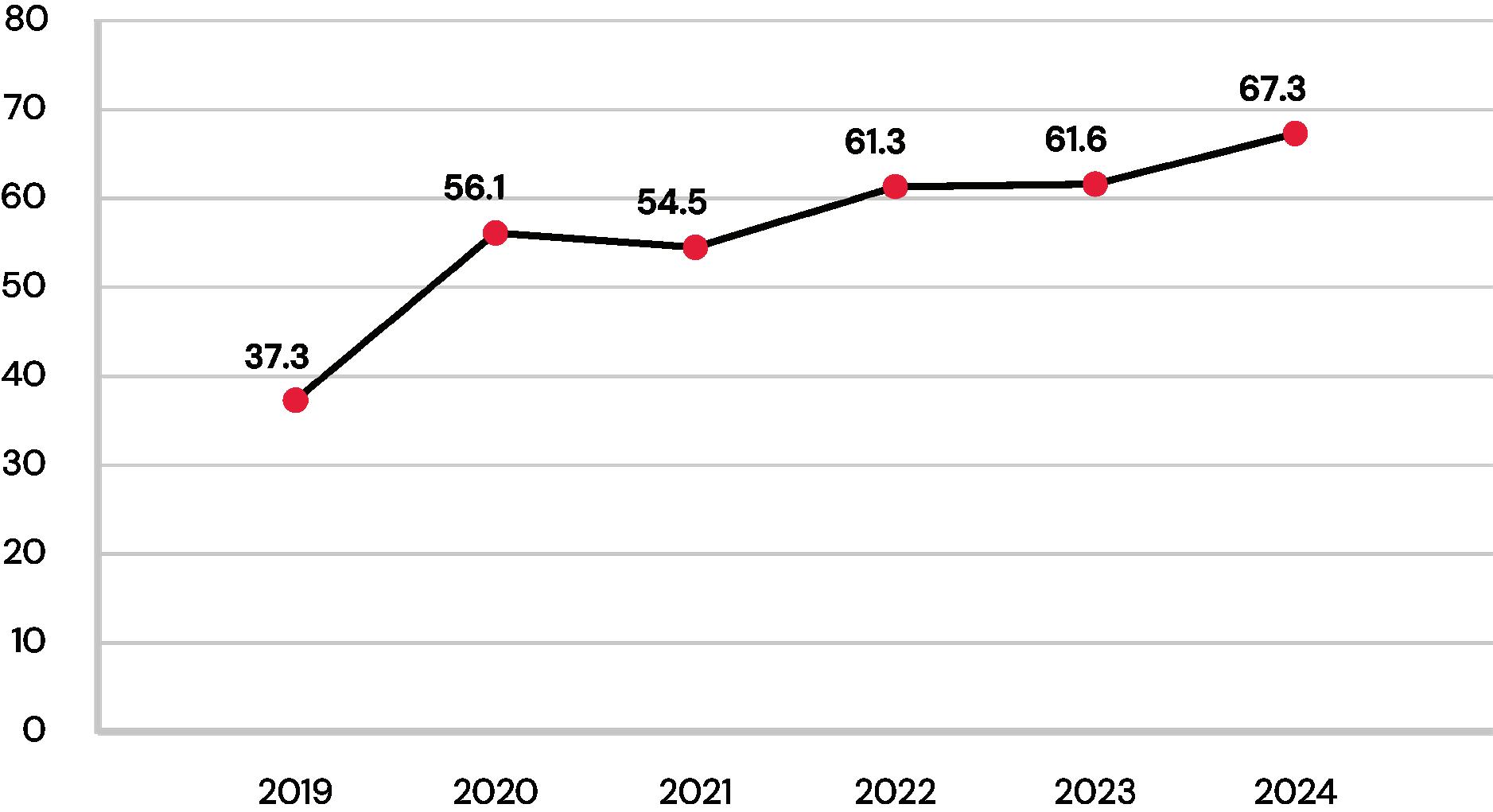
Source: https://www.timeshighereducation.com/world-university-rankings/university-guelph
Research Funding
In 2024, the total research funding awarded to Lang researchers was $1,740,110
Total Research Funding by Sponsor 2024
Source: Institutional Research and Planning, Report on Research Funds Awarded FY2024
https://irp.uoguelph.ca/data-statistics/ data-insights/research-funds
The top three sponsors were: Social Sciences and Humanities Research Council (SSHRC)
Non-Profit Charitable Organizations
Food and Agribusiness (OMAFA)
Research Funding by Unit:
Dean’s Office
Economics & Finance
Hospitality, Food & Tourism Management
Management
Marketing & Consumer Studies
During the past year, we’ve continued to expand our research portfolio with a focus on high-impact projects. This section highlights new Tri-Agency grants Lang researchers were awarded, representing a diverse range of disciplines and addressing some of today’s most pressing challenges. These new initiatives underscore our commitment to advancing knowledge and driving innovation, and they would not be possible without the hard work and dedication of our researchers and their collaborators.
NSERC Discovery Grant
NSERC Discovery Grants are Canada’s premier funding source for long-term, fundamental research programs in the natural sciences and engineering, providing researchers with the flexibility to explore innovative ideas as they emerge.
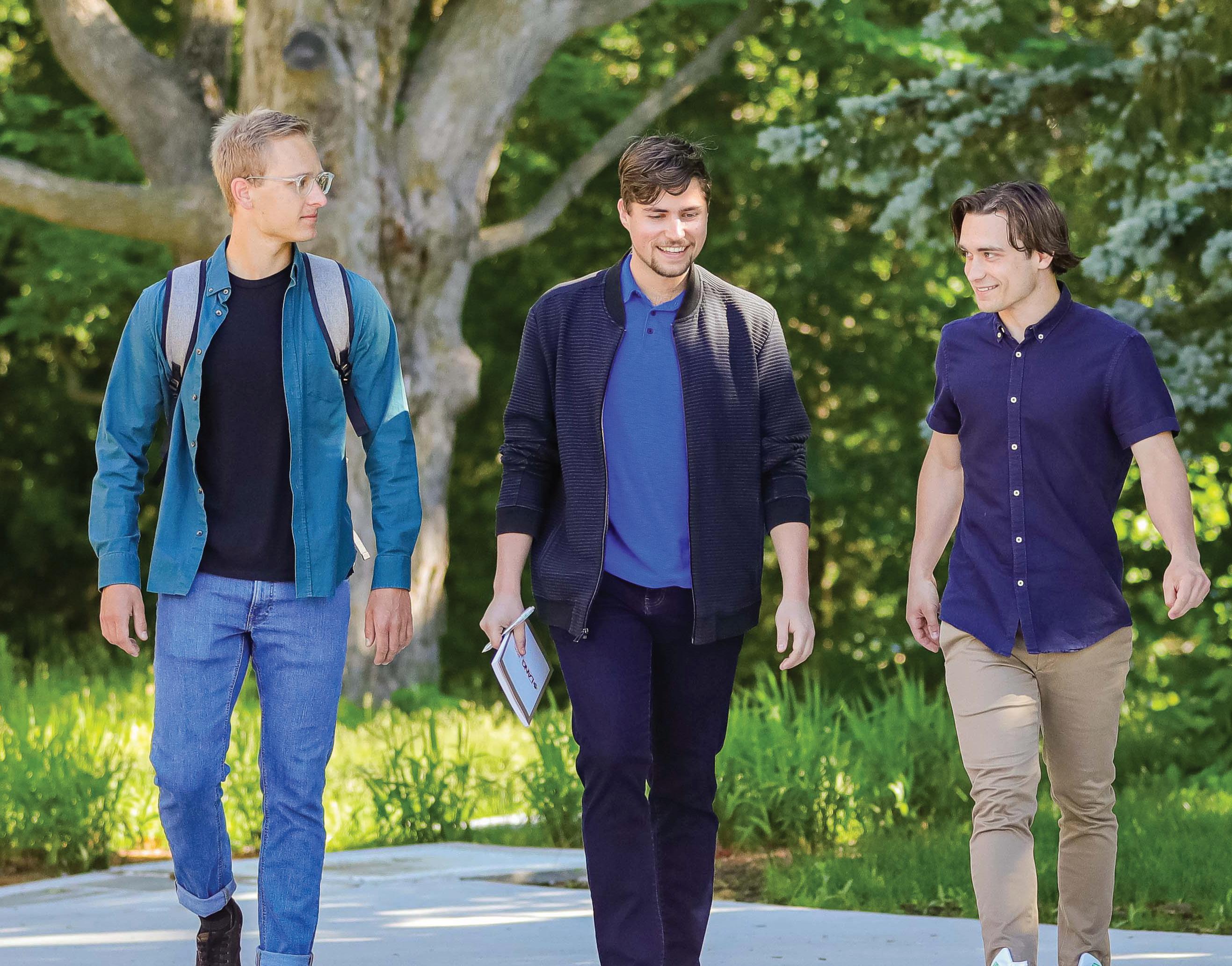

Fred Liu
Enhancing the Accuracy and Interpretability of Market Risk Forecasts for Basel 3 Banking Regulation via Deep Learning with Feature Engineering
Dr. Liu’s project uses advanced deep learning models to enhance the accuracy and interpretability of market risk forecasts. This work aims to help banks and regulators more effectively manage financial risk and determine capital reserves.

SSHRC Insight Development Grants
SSHRC Insight Development Grants (IDG) provide short-term funding to support the development of research projects, particularly for emerging scholars. Lang researchers were the principal investigators on 44% of the University of Guelph’s funded IDGs in 2024, totaling $236,029. Lang-led projects explore topics related to social finance, foreign exchange swaps, machine learning, and organizational behaviour.
In June 2024, four new SSHRC IDG grants were awarded to the following lead investigators:

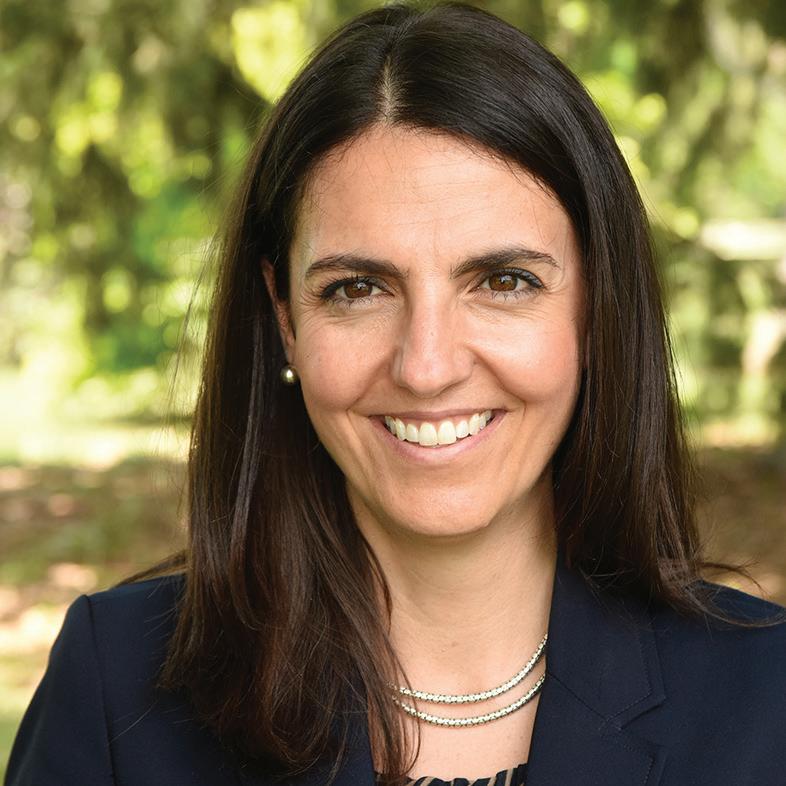

Audrey Jamal
Social Finance in Canada: Scaling community bonds to create social impact
Dr. Jamal is the lead on a research project focused on the community bond (CB) market in Canada. This study will explore how community bonds—a social finance tool that helps nonprofits, charities, and co-ops raise capital—can be effectively developed and scaled. By examining best practices and understanding investor motivations, the research aims to provide key policy recommendations to expand the use of CBs across the country.
Fred Liu
Accurate and Interpretable High-Frequency Option Liquidity Forecasts using Machine Learning with Innovative Variable Engineering
Dr. Liu will use cutting-edge machine learning techniques and an innovative dataset to enhance the prediction of high-frequency option liquidity. This research is designed to provide greater accuracy and interpretability, offering valuable insights for financial markets and risk management.



Ilias Tsiakas
The Risk and Return of Foreign Exchange Swaps
Foreign exchange swaps are a cornerstone of modern finance, used extensively for everything from hedging risk to sophisticated tax planning. Yet, academic literature on their risk and return remains surprisingly scarce. Dr. Tsiakas is tackling this gap with a new research project, providing much-needed insight into these powerful financial tools.

Daniel Wigfield
(PI, former post-doctoral fellow) with co-applicants Ann Pegoraro & Kathleen Rodenburg
The Anatomy of a Scandal: Analyzing the Organizational Behaviour and Oversight of National Sport Organizations in Canada
Dr. Wigfield, along with Lang researchers, Drs. Pegoraro and Rodenburg, aim to analyze how corporate misconduct and oversight manifest within Canada’s national sport organizations. His project will examine where and why ethical and governance failures continue to occur in the Canadian amateur sports system. The research aims to provide critical insights to help strengthen oversight and promote a healthier, more transparent environment for athletes and organizations.
Read more: https://www.uoguelph.ca/lang/news/2024/11/lang-faculty-contribute-ug%E2%80%99s-sshrc-insight-development-grant-funding-2024-competition
SSHRC Partnership Engage Grant
SSHRC Partnership Engage Grants provide short-term, targeted funding for research partnerships between researchers and a single organization from the public, private, or not-for-profit sectors. The purpose is to address an immediate, specific challenge or opportunity faced by the partner organization.
In 2024, two Lang researchers were awarded a SSHRC Partnership Engage Grant collaborating with external partners.

Davar Rezania
Title: Institutional Practices and Project Management
Partner: Canada’s Technology Triangle
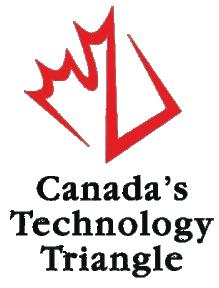

Daniela Senkl
Title: On the Transformative Potential of Context-based Sustainability: Current Practices, Challenges and Potentials for the Development of Sustainability Strategies of Municipalities
Partner: REFOCUS Sustainability Co-operative Inc.

Research Quality

56 publications are A* or A of publications are in ABDC journals based on the 2022 list 77.1%


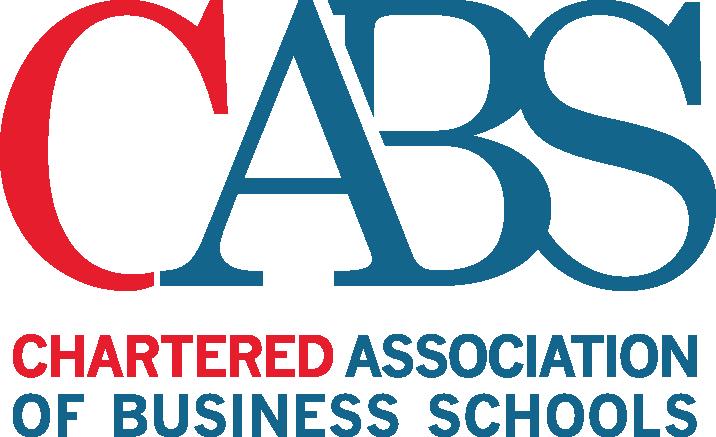
74.2% of publications are in ABS journals
12 publications are A* or A on ABS list


Research Papers in Economics (RePEc) rankings is a comprehensive, open-access database of working papers, journal articles, and software components for economics research, and its rankings are a globally recognized measure of research influence and productivity.
10 faculty members have been recognized for their exceptional research contributions, with publications from the last 10 years placing them among the top 25% of authors in Canada, according to the RePEc rankings.





Dr. Gregory Bauer

Dr. Talat Genc

Dr. Nikola Gradojevic

Dr. Hong Li
Dr. Kris Inwood

Dr. Ross McKitrick
Dr. Rene Kirkegaard

Dr. Thanasis Stengos
Dr. Yiguo Sun
Dr. Ilias Tsiakas
Source: https://ideas.repec.org/top/top.canada.html

FT50 articles in 2024


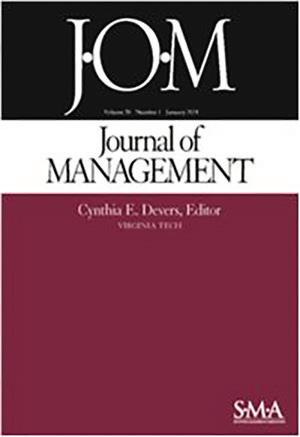
Covert allyship: Implementing LGBT policies in an adversarial context
Human Resource Management, 63(4), 711-729 by Röell, C., Özbilgin, M., & Arndt, F. (2024).
https://doi.org/10.1002/hrm.22223
Doing good for political gain: The instrumental use of the SDGs as nonmarket strategies. J Int Bus Stud 55, 1170–1189 (2024). by Röell, C., Arndt, F., Benischke, M.H. et al. https://doi.org/10.1057/s41267-024-00723-5
Applying event system theory to organizational change: The importance of everyday positive and negative events. Journal of Management, 51(3), 1066-1095. by Kiefer, T., Barclay, L. J., & Conway, N. (2024).
https://doi.org/10.1177/01492063241237221
We are proud to highlight that Lang faculty have six articles published in the prestigious Financial Times 50 (FT50) journals. This accomplishment reflects the exceptional quality and impact of the research being conducted within our school. Publishing in these top-tier, globally recognized journals is a testament to our faculty’s commitment to thought leadership and their ability to produce work that shapes both academic discourse and business practice.
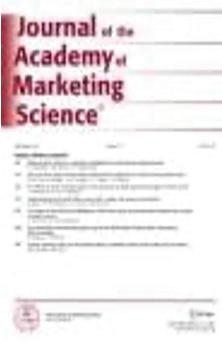
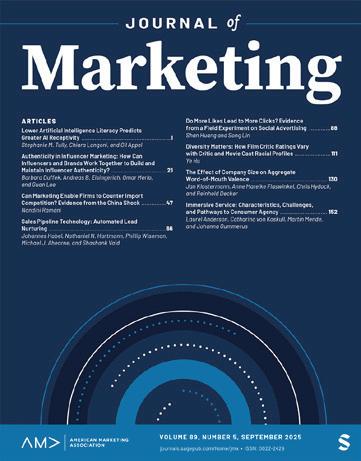
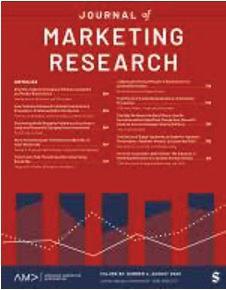
Felt something, hence it works: Merely adding a sensory signal to a product improves objective measures of product efficacy and product evaluations.
Journal of the Academy of Marketing Science, 1-19 by King, D., Auschaitrakul, S., & You, Y. (2024).
https://doi.org/10.1007/s11747-024-01030-z
Collaborating to innovate: Balancing strategy dividend and transactional efficiencies.
Journal of Marketing, 88(5), 153-179. by Elhelaly, N., & Ray, S. (2024).
https://doi.org/10.1177/00222429231222269
Monitoring technologies in industrial systems.
Journal of Marketing Research. 62(2), 227-248. by Shekari, S., & Ray, S. (2024).
https://journals.sagepub.com/doi/10.1177/00222437241282308

AWARDS and HONOURS
University Research Excellence Award 2024
Dr. Rogier Holtermans, from the Department of Marketing and Consumer Studies, was awarded the 2024-2025 University Research Excellence Award. This award recognizes outstanding scholarly achievements and impactful research by recently tenured faculty members. It is awarded by the Office of the Vice-President (Research and Innovation), with each college/Lang receiving one award per year.
Rogier holds a Ph.D. in Real Estate Finance from the University of Cambridge, where he specialized in the application of advanced quantitative methods to real estate investment and portfolio optimization. He also obtained a Master’s degree in Real Estate from the University of Cambridge and a Bachelor’s degree in Economics from the Erasmus University Rotterdam.
Rogier is responsible for teaching advanced courses in real estate finance, investment, and portfolio management. He also actively conducts research, publishing in leading academic journals, and serves on the editorial board of several prestigious real estate publications. Through his teaching and research, Rogier has made significant contributions to the understanding of real estate investment strategies, risk management, and the role of technology in the industry.
Rogier’s research has been widely cited in academic and industry publications, and he has been invited to speak at numerous international conferences and industry events. He has also served as a consultant to various real estate investment firms, sharing his expertise in asset allocation, risk assessment, and performance optimization.
Read more: https://news.uoguelph.ca/2024/08/2024research-excellence-awards-recognize-significantresearch-achievements/




Scholars Joining Lang in 2024
The Lang School of Business and Economics strengthened its research and teaching expertise with the addition of six new faculty members in 2024. These scholars bring a wealth of diverse knowledge and experience across various business disciplines. Their arrival enhances our capacity to produce impactful, cutting-edge research and provides students with a dynamic, forward-thinking learning environment.


Sumitra Auschaitrakul
Associate Professor
Marketing & Consumer Studies
Dr. Auschaitrakul earned her PhD in Management (Marketing) from McGill University. Her research addresses consumer behaviour, focusing on understanding the psychology behind consumers’ judgment and decision-making with specific interest in product design, branding, digital technology and diversity in the marketplace.
Tahereh Hasani
Assistant Professor Management
Dr. Hasani received her PhD in Marketing Management from the Putra Business School, University Putra Malaysia. Her research interest focuses on studying how the adoption of new technologies such as cybersecurity and AI affect companies’ performance with special focus on start-up businesses.




Yin Jia (Jeff) Qiu
Assistant Professor
Economics and Finance
Dr. Qiu holds a PhD in Economics from Yale University. His research focuses on industrial organization, innovation economics, and antitrust policy. Prior to joining the Lang School, he served as a staff economist at the U.S. Department of Justice, Antitrust Division.
Kelsey Taylor
Assistant Professor
Hospitality, Food and Tourism Management
Dr. Taylor holds a PhD in Operations Management from the Ivey Business School at Western University. Her research focuses on sustainable supply chain management, examining how entrepreneurs can drive social impact.
Jiangnan (Jeanine) Zeng
Assistant Professor
Economics and Finance
Dr. Zeng earned her PhD in Economics from the University of Pittsburgh. Her research interests concentrate on public economics, labour economics and urban economics.
Arrell Chair in the Business of Food
Sadaf Mollaei
Assistant Professor / Arrell Chair in the Business of Food Hospitality, Food and Tourism Management
The endowed Arrell Chairs are a cornerstone of the Arrell Food Institute (AFI) that was created in 2017 through a significant gift from the Arrell family. The holders of the Arrell Chairs are leading academics who conduct cutting-edge research, mentor students, engage in public outreach, and collectively play a key role in addressing complex global challenges related to how we produce, distribute, and consume food.
In 2024, the Lang School welcomed Dr. Sadaf Mollaei, as the Arrell Chair in the Business of Food. Dr. Mollaei holds a PhD in Sustainability Management from the University of Waterloo. Dr. Mollaei’s research focuses on consumer behaviour and decision-making related to sustainable food choices. She conducts both qualitative and quantitative research at the intersection of sustainability, marketing, and public health and is particularly interested in studying the promotion of sustainability through interventions and sustainable marketing, especially among critical sub-group populations such as young adults and children.



RESEARCH HIGHLIGHT
The power of language: Rethinking food labels to expand our plant-based choices
Written by: Dr. Sadaf Mollaei, School of Hospitality, Food and Tourism Management
Published: February 20, 2025, The Conversation
“Vegan,” “vegetarian,” “meatless,” “plant-based,” “plant-rich,” “plant-forward,” “animal-free”: these are all terms used to describe foods or diets that are mostly or completely made of non-animal sources.
This list can go on and, although these terms are to some extent related, they’re not the same. For example, the term “vegan,” coined in 1944 by The Vegan Society, is used to define products that contain no animal-based ingredients.
According to Canada’s Food Guide, “vegetarian diets are those that exclude some or all animal products,” whereas a plantbased diet is defined as one that “puts more emphasis on eating plant foods such as vegetables and fruits, whole-grains and legumes (beans) and less emphasis on eating animal foods.”
In another definition, The British Dietetic Association describes a plant-based diet as “based on foods that come from plants with few or no ingredients that come from animals.”
Why does this matter? Because regardless of the label, evidence supports that diets that contain fewer animal-based products such as meat are proven to be better for your health and the natural environment.
Read the full story on The Conversation: https://theconversation.com/the-power-of-languagerethinking-food-labels-to-expand-our-plant-basedchoices-249698
Spotlight on Research Leadership

Laurie Barclay
Research Interests
» Fairness
» Leadership
» EDI (Equity, Diversity, Inclusion)
» Behavioural Ethics
Professor Lang Chair in Leadership
» Healthy Work
» Conflict Management
» Forgiveness
» Emotions
» Aggression
Dr. Barclay’s highlights included being named a U of G Research Leader Award recipient and appointed Associate Editor for the Journal of Leadership & Organizational Studies. She published several articles on workplace justice, including one in an FT50 journal, and mobilized her research globally through conferences and features in media like the New York Times, and serving as a Graduate Coordinator.

Ann Pegoraro
Research Interests
» Gender Equity
» Diversity
» Digital Sport
» Sport Consumer Behaviour
» Sport Marketing
Professor Lang Chair in Sport Management
Dr. Pegoraro’s achievements highlighted her leadership in sport management and gender equity. She secured Mitacs and Ontario Research Fund grants, was a Keynote Speaker at the Ontario Soccer Summit, and published academic papers. She also actively supervised a growing lab of graduate and post-doctoral researchers.
Building on a foundation of sustained excellence, 2024 was another strong year for the Lang and John F. Wood Chairs. Their distinguished contributions continue to elevate the Lang brand, fostering novel collaborations and solidifying the Lang School’s position as a hub of knowledge and expertise.

Sourav Ray
Research Interests
» Designing for Effective Business to Business Marketing
» Marketing Strategy in Technology Intensive Industries
Professor Lang Chair in Marketing
» Digital Transformation
» Pricing
» Distribution Channels
» Innovation
» Consumer Inattention
Dr. Ray’s highlights included back-to-back FT50 publications in the Journal of Marketing and Journal of Marketing Research, providing the first empirical evidence of the Internet of Things (IoT) impact on industrial business. He continued as an Associate Editor for the Journal of Business Research and was appointed as Director of the Marketing Analytics Centre.

Ilias Tsiakas
Research Interests
» Asset Pricing
» International Finance
» Financial Econometrics
» Climate Finance
Professor Lang Chair in Finance
Dr. Ilias Tsiakas’s 2024 centered on finance research, securing a major SSHRC grant for foreign exchange swaps, and publishing on carbon emissions and firm profitability. He presented his asset pricing and cryptocurrency work at international and national conferences, and provided significant service, including on a decanal search committee.
LANG CHAIRS


Research Interests
» Strategic Management
» Entrepreneurship
» International Business Strategy
Barak Aharonson
Professor
John F. Wood Chair in Innovation Management
» Knowledge Flow
» Technology Innovation
» Networks
» Alliances
Dr. Aharonson’s core research focused on strategic management, entrepreneurship, and innovation, examining how businesses use technology for competition and cooperation. He maintained service roles including as an Associate Editor for the European Management Journal; taught and supervised graduate students; and worked on international research projects.

Felix Arndt
Professor
Research Interests
» Different and Dynamic Institutional Context
» Technological Change
» Emergence and Role of New Actors in Industries
John F. Wood Chair in Entrepreneurship
» Entrepreneurs That Initiate Changes
» Sustainability
» Corporate Social Responsibility
Dr. Arndt’s work was centered on strategic management, entrepreneurship, and innovation research, especially regarding sustainability and technology. He had two FT50 publications. He actively served as Editor-in-Chief of the Canadian Journal of Administrative Sciences and as an Associate Editor for the British Journal of Management.
JOHN F. WOOD CHAIRS

Trump’s tariff threat is a sign that Canada should be diversifying beyond the U.S.

Written by: Dr. Eric Chi, Department of Economics and Finance
Published in: The Conversation, December 2024.
United States President Donald Trump has announced a 25 per cent tariff on Canada and Mexico if border control and illegal drugs coming into the U.S. aren’t curtailed. Both federal and provincial leaders have been scrambling to address the potential threat posed by such a significant trade penalty.
Without a doubt, the U.S. remains Canada’s largest trading partner. More than 70 per cent of Canada’s exports go to the U.S. — larger than the next 10 trading partners added together. This situation highlights Canada’s heavy reliance on U.S. trade and the vulnerability that comes with it.
Canada could reduce dependency on the U.S. by diversifying trading partners. Establishing stronger ties with emerging economies and expanding exports to alternative markets would strengthen Canada’s bargaining position with the U.S. However, diversification is easier said than done.
For now, the most practical approach is for Canada to focus on negotiations with the U.S. to avoid or mitigate any punitive tariffs. An increase of 25 per cent would make Canadian exports prohibitively expensive for Americans, could inflict damage on the Canadian economy, and could hurt American businesses as well.

Opportunities beyond North America
Canada’s long-term path to economic resilience lies in pursuing deeper engagement with other global markets. As a member of the Comprehensive and Progressive Agreement for Trans-Pacific Partnership, Canada can expand trade with countries like Australia, Brunei, Chile, Japan, Malaysia, Mexico, New Zealand, Peru, Singapore and Vietnam.
Similarly, forming trade ties with other emerging economies like China and Association of Southeast Asian Nations (ASEAN) presents tremendous opportunities for Canada and its long-term export growth. Members of ASEAN include Brunei, Burma, Cambodia, Indonesia, Laos, Malaysia, Philippines, Singapore, Thailand and Vietnam.
Canada is well-positioned to strengthen trade ties with emerging economies. Canada has several inherent advantages, including abundant natural resources, a highly educated and skilled population and good institutions.
By expanding trade relationships with emerging markets, Canada can strengthen its economic position and reduce its exposure to the whims of American trade policy.
Read the full article: https://theconversation.com/trumps-tariff-threat-isa-sign-that-canada-should-be-diversifying-beyond-the-u-s-245134

Strategic Research Goal: Strategic Research Goal: Amplify Impact
We aim to be a Canadian business school leader in the mobilization of knowledge by increasing engagement with industry, communities, not-for-profit partners and policymakers throughout the research process. We pursue inclusive and open scholarship to create a positive impact on society.
Lang faculty provided expert commentary on a wide range of events and business issues, with a strong focus on consumer behaviour, sports marketing, labor relations, ethical and social responsibility, and pressing economic challenges.
Media Engagement in 2024
Select contributions include:
Nita Chhinzer
Nita Chhinzer, professor of human resource management, specializing in downsizing, provided commentary to CBC News on Canada Post’s financial strategies, suggesting the organization should focus on its core services rather than diversifying.
Hwan-Suk (Chris) Choi
Hwan-Suk (Chris) Choi spoke to Mississauga News ahead of a potential Air Canada pilot strike.
Timothy Dewhirst
Timothy Dewhirst, professor of marketing, contributed pieces in The Globe and Mail focused on issues surrounding gambling ads on hockey helmets, advocating for greater protection for children, and offered commentary on the Loblaw boycott in response to the bread price-fixing scandal. For the Toronto Star, he provided insights on Rogers Communications’ sports monopoly in Toronto, its impact on sports media deals, and potential price increases for fans. He also weighed in on the Rogers Centre renovations, Rogers’ dominance in the Toronto concert scene, branding issues concerning the Kansas City Chiefs, the removal of gambling ads from Ontario arenas, the role of advertising in the Oscars, and how the Detroit Pistons’ losing streak aided product promotion. His discussions on regulations surrounding vape store signage and cannabis advertising were featured on CBC News, where he also commented on the “broken” concert ticket system. Dr. Dewhirst co-wrote an op-ed for the Detroit Free Press regarding an unusual NHL rule and discussed the illegality of fossil fuel ads in Edinburgh, Scotland, for the Washington Post. Lastly, his insights on Rogers Communications’ sports monopoly were featured on TVO’s The Agenda with Steve Paikin.
Tirtha Dhar
Tirtha Dhar discussed potential solutions to Canada’s housing crisis, including the role of Real Estate Investment Trusts (REITs), with City News Kitchener.
Lianne Foti
Lianne Foti shared insights with CBC News regarding the reasons behind The Body Shop’s decision to close stores and end online sales in Canada. She also co-authored an article with professor and Associate Dean Kathleen Rodenburg in Conversation Canada about the urgent need for comprehensive ethical education after Canada’s soccer drone scandal.
Jamie Gruman
Jamie Gruman explored topics related to well-being and personal growth in Psychology Today. His pieces include discussions on how sensation might help individuals overcome ruts, whether “positive psychology” has a future in a changed world, and 10 rules for success in university.
Audrey Jamal
Audrey Jamal contributed to The Conversation Canada on Canada’s economic vulnerabilities and the importance of investing in local wealth building.
Katie Lebel
Katie Lebel, professor of sports management researcher, contributed frequently to the Toronto Star, offering her thoughts on the launch of a new professional women’s baseball league and a WNBA expansion team in Toronto. Additionally, she discussed how new PWHL logos, specifically for the Toronto Sceptres, could enhance team appeal to a broader audience.
Sean Lyons
Sean Lyons addressed generational dynamics in the workplace. He spoke with the Toronto Star about whether Gen Z is “lazy” at work or simply better at setting healthy boundaries and was consulted by Newsweek to comment on generational stereotypes.
Bruce McAdams
Bruce McAdams commented on the evolving culture of tipping. He spoke to CBC Radio’s Cost of Living about customer rebellion against “tip-flation” and discussed with Global News how tipping practices have evolved, particularly since the pandemic.
Diana Mok
Diana Mok has frequently commented on housing markets and affordability. She spoke to CBC Business about who benefits from an expensive housing market and discussed the tight housing market in London with the London Free Press. She also shared her thoughts with CBC Kitchener-Waterloo on whether it might be time to rethink the goal of homeownership.
Ann Pegoraro
Ann Pegoraro, Lang Chair in Sport Management, shared her expertise on international sports and women’s sports, speaking to The Globe and Mail about why Canadian fans are increasingly watching international sports. Her insights on the “Clark Effect” and its impact on women’s sports and the women’s trading card market were featured in Front Office Sports and Yahoo Sports
Emily Robinson
Emily Robinson shared her thoughts with CBC News on what has and hasn’t worked for cities and towns implementing plastic bans to combat plastic use.
Thomas Sasso
Thomas Sasso, assistant professor and EDI coordinator, engaged with various outlets on topics related to gig work and equity. He was interviewed by Global News about the prevalence of gig work in Canada and the need for better supports for gig workers. He spoke to the Financial Post about the potential of AI to transform DEI policies and discussed layoffs at food delivery services like Skip the Dishes with CBC News. Professor Sasso also spoke with CBC Radio One about his research on ‘Drag as Werk’ and its implications for protecting queer artists in gig work.







Sunghwan Yi
Sunghwan Yi, a professor whose research focuses on compulsive buying, discussed strategies to prevent impulse purchases, particularly during holiday shopping, with Global News and CBC Radio’s Alberta at Noon
Jiangnan (Jeanine) Zeng
Jiangnan (Jeanine) Zeng contributed to VoxDev with a piece on media representation, racial biases, and voting lessons observed in Sesame Street.
Ying Zhu
Ying Zhu discussed responsible spending and how sales create a psychological sense of perceived savings with the Associate Press (as reported by VicNews.com).



From NIMBY to YIMBY: Localized Real Estate Investment Trusts Can Help Address Canada’s Housing Crisis


Written by: Leslie Legge and Dr. Tirtha Dhar, Department of Marketing and Consumer Studies
Published in: The Conversation, July 2024
The housing crisis in Canada has reached a critical juncture. With rising real estate prices and a dwindling number of affordable options, it is crucial that Canada rapidly increases housing stocks in high-demand markets.
However, several key challenges hinder this necessary growth, including pervasive Not In My Backyard (NIMBY) sentiment, which refers to residents opposing proposed developments in their local area.
NIMBYism, often viewed as a clash between local interests and governmental efficiency, stems from the inherent trade-off involved in many development projects. NIMBY opposition can lead to lengthy public approval discussions, higher development costs due to delays, and the failure to meet local community housing needs. These concerns are logical and deserve consideration. Homeowners naturally ask, “What’s in it for me?”
Promoting equity within the system is widely accepted as a potential solution to mitigate the effects of NIMBYism. We need strategies that offer tangible benefits to existing homeowners to gain their support for increasing housing stocks where it is most needed.

Increasing homeownership
Homeownership in Canada is declining. The 2021 Canadian Housing Survey reported that the growth of renter households outpaced the growth of owner households, pushing down the homeownership rate in Canada from 69 per cent in 2011 to 66.5 per cent in 2021.
Given the growth in housing prices, enabling more people to tap into this booming market can significantly enhance household wealth. Increased ownership in any existing and proposed developments will also decrease NIMBYism.
So, what’s the solution?
One promising solution to the housing crisis lies in real estate investment trusts (REITs). REITs are a type of real estate financing vehicle that pools capital from multiple investors in exchange for financial returns. These trusts offer a way to increase the housing supply by focusing on affordability and innovation.
By leveraging localized REITs and government incentives, we can create a more inclusive, prosperous and cohesive society. It is time to move beyond short-term objections and focus on long-term solutions that benefit all Canadians through wealth creations.
Read the full article: https://theconversation.com/from-nimby-to-yimbyhow-localized-real-estate-investment-trusts-can-help-addresscanadas-housing-crisis-234263

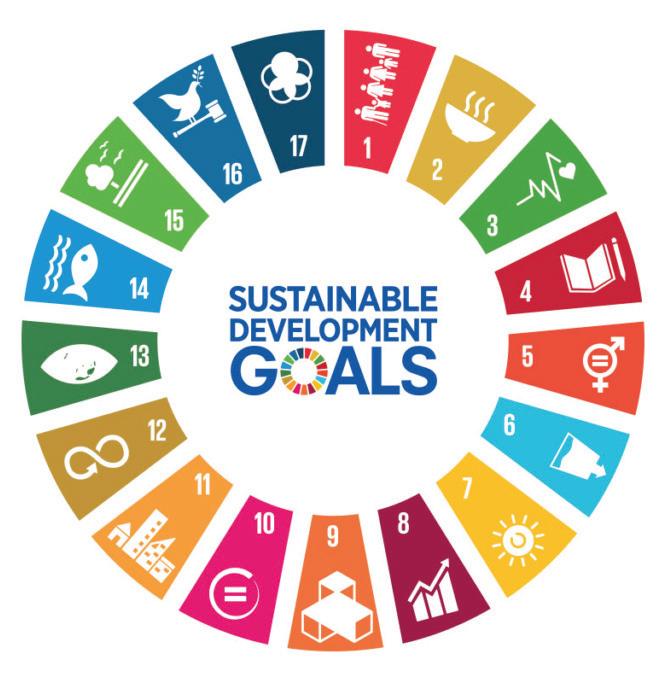
UN Sustainable Development Goals –making an impact
Lang’s vision is to be recognized locally and globally for our commitment to developing future leaders for a sustainable and equitable world.
In 2024, our scholars made significant contributions to 13 of the 17 United Nations Sustainable Development Goals (SDGs), demonstrating the breadth and depth of our impact. More than half of this research directly aligned with three key goals: SDG 8 (Decent Work and Economic Growth), SDG 16 (Peace, Justice, and Strong Institutions), and SDG 10 (Reduced Inequalities), underscoring our dedication to addressing some of the world’s most pressing challenges.
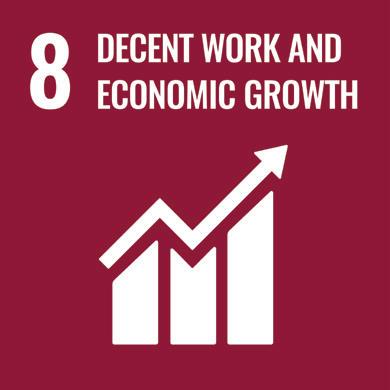
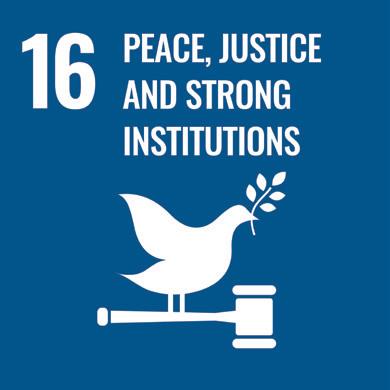

FEATURED RESEARCH STORY
Businesses are leveraging the UN Sustainable Development Goals to gain political influence

Written by: Dr. Felix Arndt, Department of Management
Published in: The Conversation, October 2024
At first glance, the United Nations’ Sustainable Development Goals (SDGs) appear to be a rallying cry for businesses to transform and contribute to the betterment of society and the environment.
Launched in 2015, the 17 goals address the world’s most pressing challenges, from climate action to the eradication of poverty. These goals are central pillars in global policy discussions and have become a buzzword for companies eager to demonstrate their commitment to social and environmental sustainability.
Yet, the reality for many businesses looks quite different: the SDGs are increasingly being used to reinforce existing practices, rather than genuinely addressing societal issues.
Purportedly, the SDGs are a global framework that aligns and commits central stakeholders to the achievement of shared social and environmental goals. Proponents of the SDGs for business argue that they represent a comprehensive social contract that brings attention to sustainable development, as well as provide a system that helps managers implement them.
However, businesses can freely use the SDG framework, logos and colours in their communications without any external validation. This means they can easily misuse them as a mere signal of good intention without needing to take them seriously.

Read the full article: https://theconversation.com/businesses-are-leveraging-theun-sustainable-development-goals-to-gain-political-influence-241449
|

Strategic Research Goal: Promote Partnership and Collaboration
We aim to be recognized globally as a Canadian business school research partner of choice for industry, government, and not-for-profit organizations and leverage strong internal and external academic collaborations to enhance our creation and mobilization of research.
Building on our commitment to collaborative research, the Lang School is solidifying its reputation as a leading Canadian research partner for a wide range of organizations. By working directly with industry, government, and not-for-profit partners, we can create and mobilize research that has a tangible, positive impact on society.
The University of Guelph has seen an upward trajectory in our industry indicator in the area of business and economics over the past 5 years, as indicated by the Times Higher Education World University Rantings (2024). This indicator reflects Lang’s partnership with industry and knowledge transfer activities, as reflected by patents and direct investment from industry.
Times Higher Education Rankings: Business and Economics 2024 - Industry

Source: https://www.timeshighereducation.com/world-university-rankings/university-guelph
Mitacs Programs and Industry Partnership SSHRC Partnership Engage Grant
Project title: Institutional practices and project management
PI: Dr. Davar Rezania
This research, a collaboration with the PMICTT chapter, will assess project managers’ experiences with organizational directives and the role of the Project Management Office. Through member interviews and workshops, the project seeks valuable data on current project management processes and perceptions.
Project title: On the transformative potential of context-based sustainability: Current practices, challenges and potentials for the development of sustainability strategies of municipalities
PI: Dr. Daniela Senkl
This partnership with REFOCUS will explore how context-based sustainability helps Canadian municipalities, which account for half of the nation’s carbon emissions, develop authentic climate strategies. The project will document the transformational experience of the City of Nanaimo, investigate other municipal practices, and analyze the benefits of this approach.
Mitacs funding secured by Lang faculty strengthens Canada’s innovation ecosystem through strategic partnerships. Projects span diverse sectors and demonstrate a strong commitment to impactful research benefiting both industry and social organizations.
Mitacs supported projects included:
Canadian Paralympic Committee – Creating a best in practice athlete services program for Canadian Paralympic Athletes
Dr. Ann Pegoraro
IndigenousTech.ai Corporation – Financial literacy/mentorship for Indigenous communities. Dr. Ruben Burga, Sonia Dhaliwal and Dr. Peter Ghattas
Kondor Pharma Inc. – Expanding dietary supplement market opportunities
Dr. Ruben Burga
Protein Industries Canada – Opportunity structures for protein alternatives
Dr. Davar Rezania
SN2 Food for All – SN2 business launchpad
Dr. Ruben Burga and Dr. Kathleen Rodenburg
SustainablEdge Technologies Inc. – Financial quantification of values associated with ESG initiatives in SME’s
Dr. Ruben Burga
Tennis Canada – Program evaluation and constituent profiles in tennis
Dr. Ann Pegoraro and Dr. Heather Kennedy
Out of 105 peer-reviewed publications, an impressive 86.7% were co-authored. This collaborative spirit extends within the School, with 8 instances of articles featuring two or more Lang faculty members as co-authors.
Ontario Hazelnut Summit: Fostering Partnership and Collaboration
The Ontario Hazelnut Summit successfully brought together a diverse range of stakeholders—including farmers from the Ontario Hazelnut Association, academics from the Lang School, government officials, and industry members. Organized by Ph.D. candidate Jonathan Parkes and advisor Dr. Kalinga Jagoda, the event’s main goal was to help farmers enhance market strategies, understand customer expectations, and build essential networks. Key activities included a government keynote, a marketing fireside chat, an industry panel, and a hands-on workshop facilitated by the Arrell Food Institute, all focused on commercializing the hazelnut sector.
A major emphasis was placed on economic research utilizing supply chain mapping. This work is crucial for assessing market potential, developing robust supply chains, and determining optimal pricing. Findings will directly aid farmers with sales, inform government policy, and raise awareness for investors, driving the continued growth of Ontario’s hazelnut industry.
Learn more about the workshop: Hazelnut Summit: Value Creation Workshop - Arrell Food Institute
Strategic Research Goal: Embed Research in
All We Do
We aim to keep research at the forefront in Lang by ensuring that it is embedded in all activities, including teaching, research support, administration, governance and community engagement.
The University of Guelph has seen an upward trajectory in our research environment in the area of business and economics over the past 5 years, as indicated by the Times Higher Education World University Rankings (2024). This indicator reflects Lang’s research reputation, research income and research productivity. It is an indicator of the importance of research to the school and our commitment to making research a top strategic priority.
Times Higher Education Rankings: Business and Economics - Research Environment
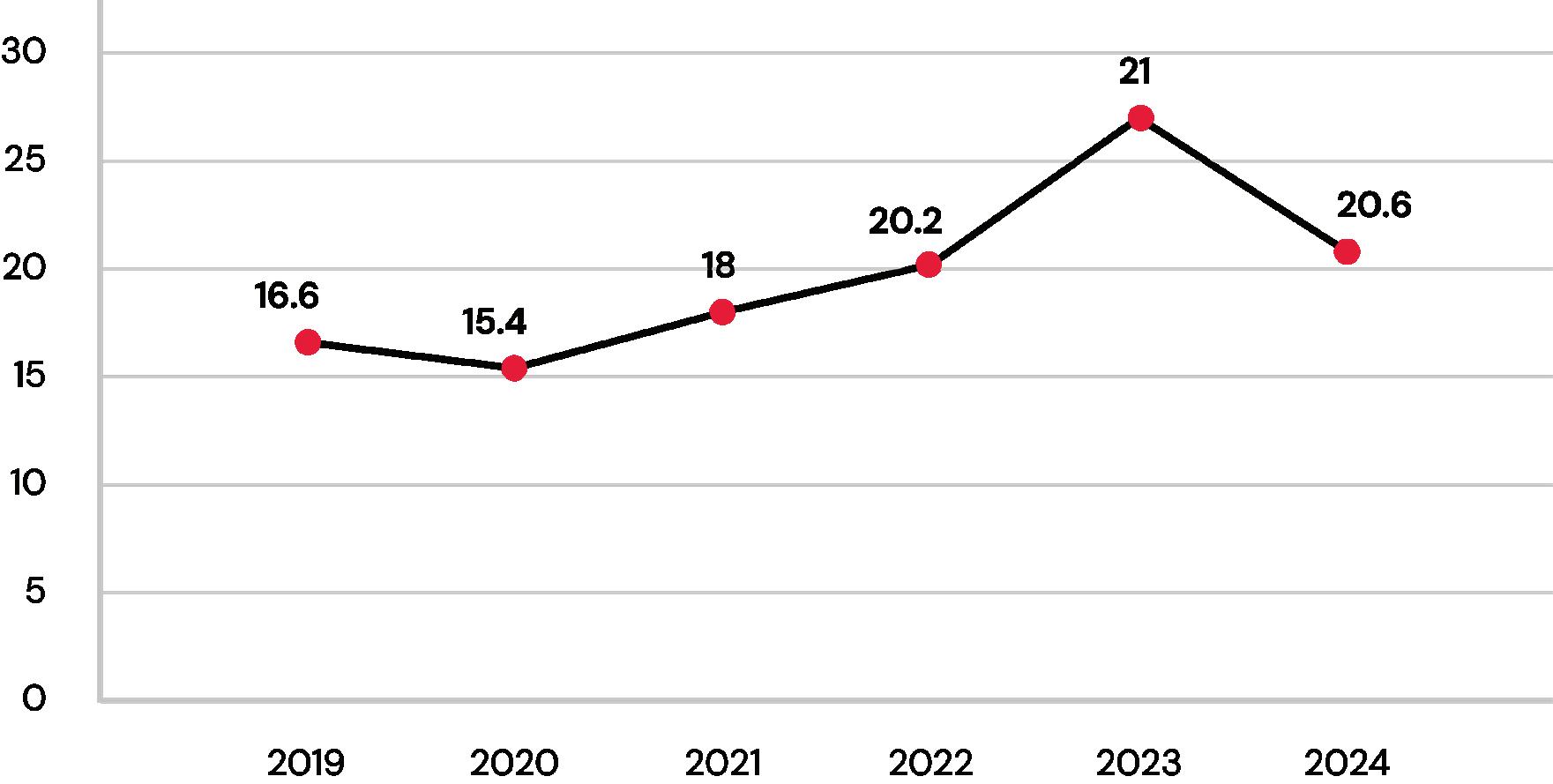
Source: https://www.timeshighereducation.com/world-university-rankings/university-guelph
University Teaching Leadership Fellows:
The University Teaching Leadership Fellows (UTLF) program significantly contributes to the University of Guelph’s mission of improving lives, inspiring purpose, and fostering responsible practices through dynamic research and pedagogical innovation. This program recognizes, rewards, and celebrates outstanding educators who will serve as leaders, researchers, advocates, and mentors to advance the value and recognition of teaching at the University.
Among the inaugural Lang recipients are:

Dr. Ruben Burga
University Teaching Leadership Fellow in Interdisciplinary and Experiential Teaching and Learning.
His project focuses on developing an interdisciplinary experiential learning curriculum framework for courses across the University. This framework aims to promote a humanistic mindset among students by integrating experiential learning and critical reflection, aligning with the UN Sustainable Development Goals. The project will result in a teaching framework and instructional guidance for faculty.

Dr. Kathleen Rodenburg
University Teaching Leadership Fellow in Workplace Ethics.
Her project seeks to enhance students’ ability to navigate ethical dilemmas. Through research, she aims to develop instructional tools that help students identify moral foundations, improve ethical decision-making, and recognize factors that influence choices in ethical situations. This initiative underscores the University’s commitment to cultivating ethical leaders for a sustainable and equitable future.
Source: https://vpacademic.uoguelph.ca/2023-university-teaching-leadership-fellows


Networking doesn’t have to be a chore — here are 3 ways to make it more enjoyable and effective
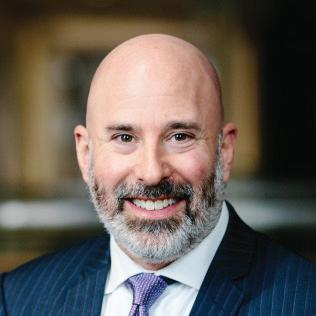
Written by: Dr. Jamie Gruman, Department of Management
Published in: The Conversation, October 2024
Does the thought of putting on a fake smile and making idle small talk with strangers in order to advance your career send shivers down your spine? Do you avoid networking as a result? If so, you’re not alone.
People shun networking for a variety of reasons, such as shyness, a lack of confidence, feeling uncomfortable asking for help or because they want to be authentic and avoid “putting on an act.”
However, avoiding networking can be a bad career move. Networking provides valuable benefits, including assistance with work, social and career support, and a way to gain new ideas and business opportunities.
Read the full article: https://theconversation.com/networking-doesnt-have-to-bea-chore-here-are-3-ways-to-make-it-more-enjoyable-and-effective-239918.
STORY
Playing to prosper: How sports participation leads to long-term success for girls

Written by: Dr. Katie Lebel, Department of Management
Published in: The Conversation, August 2024
The 2024 Paris Olympics mark the first gender-equitable Olympic Games in history, with equal numbers of men and women athletes. This year also saw the launch of the Professional Women’s Hockey League. Canada’s first professional women’s soccer league, the Northern Super League, is set to begin in 2025, and the WNBA granted Toronto an expansion franchise that will begin play in 2026.
But despite these advancements, only 31 per cent of Canadian girls are currently meeting established physical activity guidelines. In particular, sports participation has been declining in Canada over time and with age. As many as 62 per cent of Canadian girls are not participating in sports of any kind — a decline of at least 14 per cent over the past decade.
Sports and leadership
A staggering 94 per cent of women who hold C-suite executive-level positions were former athletes, according to an Ernst and Young report. Similarly, Deloitte found 85 per cent of women who played sports attribute their career success to the skills they developed through sports participation.
To better understand this in a Canadian context, we collected the socioeconomic measures of educational attainment, career trajectory and employment income for women U Sports graduates — the national sport governing body for universities in Canada — in 2011 and 2019. We did this to determine how sustained sports participation impacted their human capital development.
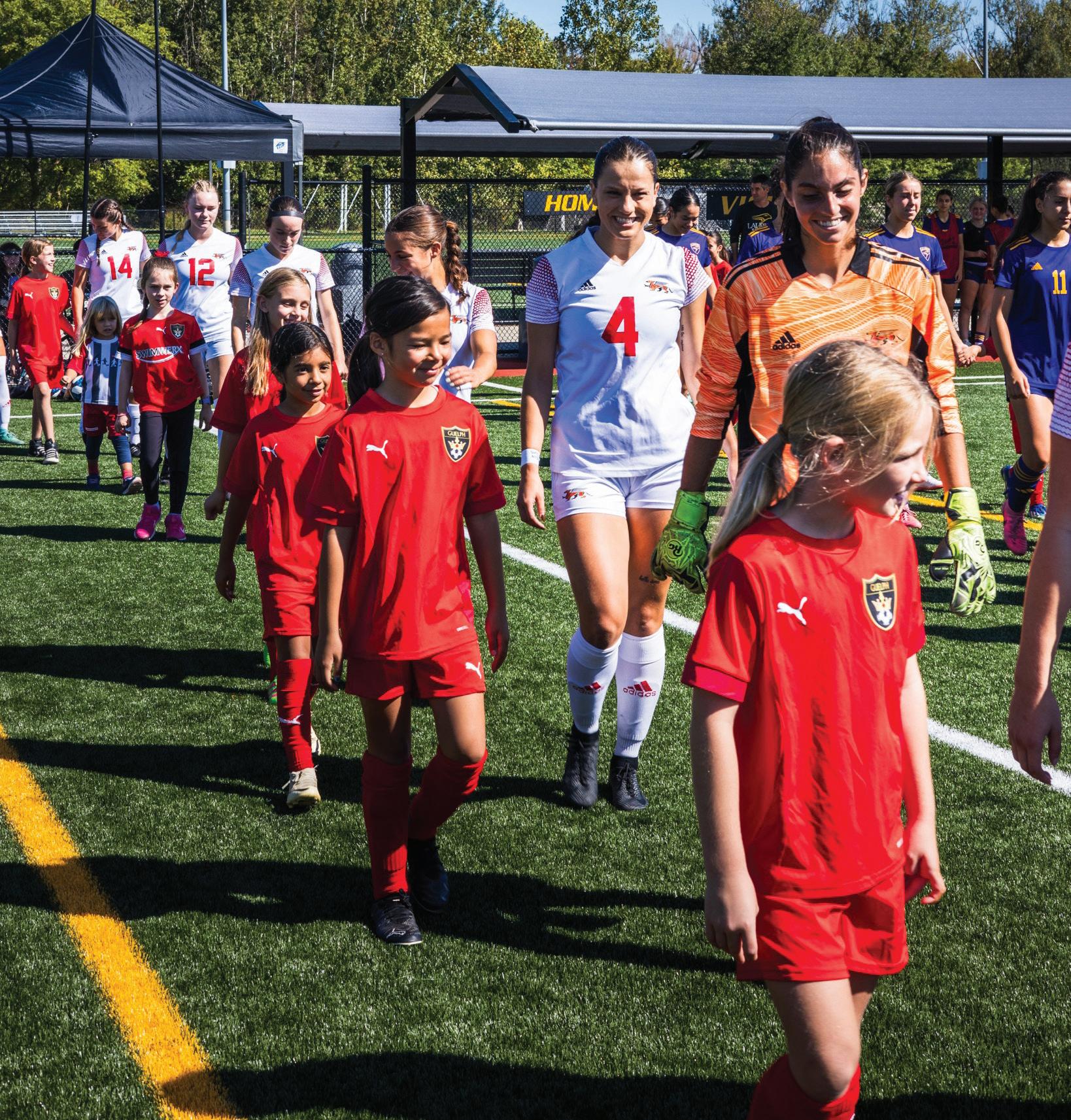
The impact of sport
We found that 58 per cent of women varsity athletes pursued graduate level education, a rate nearly eight times higher than the general Canadian population. Varsity athletes were pursuing careers with higher earning potential compared to the general public. A combined 75 per cent of women varsity athletes were in careers that offered aboveaverage earnings, increasing their economic value and overall human capital.
Our research highlights the long-term socioeconomic value of girls’ sports participation. This is powerful because it doesn’t just show what’s possible — it shows that girls’ sports participation is empowering human capital development.
Read the full article: https://theconversation.com/playing-to-prosperhow-sports-participation-leads-to-long-term-success-for-girls-235631

Strategic Research Goal: Develop the Research Leaders of Tomorrow
We aim to increase our capacity to support the success of the next generation of research leaders by providing high-quality and meaningful training opportunities to a diverse and inclusive population of researchers across a variety of disciplines and approaches to research.
2024 Lang Doctoral Entrance Scholarships
The recipients of these prestigious scholarships demonstrate a high level of academic achievement, strong research skills and potential, leadership within and beyond the academic community and alignment with the vision of the Lang School.
Ph.D. Management Program recipients


Ph.D. Economics Program recipients



Ikeoluwa Aregbe
Joseph Dick
Soroosh Gholizadeh
Mina Yousefi
Robert Marriage
Theresa McDaniel
Xiaoying Zhang
Lang PhD Graduates, 2024
The Lang School celebrated a highly successful 2024 for its doctoral students, recognizing five candidates—one PhD in Economics and four PhD in Management—for their significant academic achievements. Their output, which included publishing impactful research and presenting at academic conferences, has already translated into success with graduates securing faculty appointments and industry positions, collectively boosting the scholarly profile of Lang.
PhD in Economics

Jianhan Zhang, Economics
Thesis: Endogeneity in Kink Threshold Regression Models
Advisor: Thanasis Stengos
PhD in Management




Mohammad Akbar, Marketing and Consumer Behaviour
Thesis: Three Essays on Multi-country Diffusion of Mobile Telephony
Advisor: Towhidul Islam
Yang Hoong, Organizational Leadership
Thesis: Governance and Socio-Technological change in Canadian SMEs: Securing Cybersecurity
Advisor: Davar Rezania
Stephanie Villers, Marketing and Consumer Behaviour
Thesis: Dying to Legitimate Sustainable Innovations in Stigmatized Markets
Advisor: Rumina Dhalla
Alireza Zolfaghari, Services Management
Thesis: The Dark Side of the Consumer Journey: Exploring Value
Co-destruction, service failures and the Rise of Vindictive Negative
Word of Mouth in Online Travel Agencies
Advisor: Hwan-Suk (Chris) Choi
Knowledge in Action
Developing the next generation of research leaders is a core strategic goal at Lang. We empower our PhD students to go beyond traditional academic boundaries by encouraging them to start translating their research ideas for both the academic and wider community from the very beginning of their academic journey. This proactive approach ensures our students are not just scholars, but innovators. We are immensely proud of the impactful work our doctoral scholars are undertaking.
Two of the many notable early scholars includes:

Joseph Dick
Ph.D. Management
Joseph Dick is a current PhD student in Lang, working as a research assistant in the International Institute for Sport Business and Leadership (IISBL). His expertise broadly encompasses strategies for sport organizations to garner and retain fan support.
Does hockey still provide a sense of communitas for all of Canada?
An article written in The Conversation by first year PhD Management student (at the time) which explores how hockey in Canada bridges political divides. https://theconversation.com/hockey-in-canada-canit-still-bridge-divides-in-an-era-of-political-polarization-238277

Stephanie Villers
Ph.D. Management
Former Ph.D. in Management Marketing student Stephanie Villers collaborated with supervisor, Dr. Rumina Dhalla in The Conversation.
Keen to be sustainable after dying? Earth to earth, cradle to compost https://theconversation.com/keen-to-be-sustainable-after-dyingearth-to-earth-cradle-to-compost-230161
In this piece for The Conversation Canada, Dr. Rumina Dhalla and former PhD student, Dr. Stephanie Villers, writes that human composting is an emerging phenomenon that is changing the way people think about sustainable death care.

STORY
Paris Olympics: Canada’s soccer drone scandal highlights the need for ethics education


Written by: Drs. Lianne Foti and Kathleen Rodenburg, School of Hospitality, Food and Tourism Management and the Department of Management
Published in: The Conversation, July 2024
The Canadian women’s soccer team has become the centre of controversy after reports from the 2024 Paris Olympics revealed the team used a drone to observe the New Zealand soccer team’s training sessions. That has led to New Zealand’s team lodging a formal complaint with the International Olympic Committee.
Canada’s Olympic committee has since apologized for the incident and removed the head coach of the women’s soccer team, Bev Priestman, from the Canadian Olympic team. Two other team staffers have also been sent home and one has received a suspended prison sentence.
This is not the first time in history that an incident like this has occurred. Further reports indicate this incident is part of a broader pattern, suggesting that Canada’s national soccer teams have a history of using drones and other spying techniques to observe opponents’ training sessions. Canada Soccer CEO Kevin Blue recently revealed that the men’s team also attempted to use drones to spy on other teams at the recent Copa América championship in the United States.
This practice highlights the urgent need for comprehensive ethical education and stricter regulations to prevent such breaches in sports.

Unethical behaviour in sport
The “win at all costs” mentality pervasive in sports competitions has driven several organizations to commit similar infractions.
In the 2019 “Spygate” scandal in English football, Leeds United’s then-manager Marcelo Bielsa admitted to sending a staff member to spy on Derby County’s training sessions.
During the 2007 Women’s World Cup in Wuhan, China, Denmark officials requested FIFA investigate after discovering men with cameras at a closed training session. Despite the Danish team’s complaints, FIFA chose not to take further action.
That same year, the New England Patriots’ “Spygate” scandal involved the organization videotaping the New York Jets defensive signals during a game, resulting in significant fines and the loss of draft picks.
Similarly, the Houston Astros’ sign-stealing scandal from 2017-2018 involved the use of a camera system to record and steal signs from opposing teams, leading to heavy penalties and the firing of key personnel. Additionally, in 2018, Barcelona Football Club faced accusations of hiring a company to create fake social media accounts to criticize players and opponents.
These ethical breaches, driven by the intense pressure to succeed in professional sports, are just the tip of the iceberg. What sets the Canadian soccer scandal apart is that it occurred on the world stage, causing reputational damage, not only to women’s soccer and soccer overall, but also to the Canadian Olympic team.
This incident raises questions about Canada’s commitment to ethical standards in sports, potentially impacting the nation’s international reputation and trust in Canadian athletes.
Read the full story on The Conversation: https://theconversation.com/paris-olympicscanadas-soccer-drone-scandal-highlights-the-need-for-ethics-education-235486

Book Chapters
Antonie, L., Gatto, L., Oloumi, S., & Plesca, M. (2024). Personality Characteristics Demanded by Employers: Analysis of Job Descriptions from University Job Boards. In Big Data Applications in Labor Economics, Part A (pp. 213-260). Emerald Publishing Limited. https://doi. org/10.1108/S0147-91212024000052A027
Antonie, L., Inwood, K., & Maxwell-Stewart, H. (2024). Prison Bodies: The Height and Weight of Men in Canadian Prisons, 1874-1935. In L. Kennedy & A. Shaw, eds, Fat and the Body in the Long Nineteenth Century. 107-134. University of Toronto Press. https://www.jstor. org/stable/10.3138/jj.23338280?turn_away=true
Antunovic, D., Lebel, K., Lough, N., Mumcu, C., Pegoraro, A., Soltis, K., & LaVoi, N. M. (2024). Advocacy in Women’s Sport: Business Opportunity and/or Political Action. In Media, Women, and the Transformation of Sport (pp. 108-130). Routledge. https://doi. org/10.4324/9781003474791.
Bravo Monge, Cris. (2024). “Family Business”. In International Encyclopedia of Business Management. Elsevier. https://doi.org/10.1016/B978-0-443-137013.00437-0
Dewhirst, T. (2024). Lights, camera, sponsorship, and geopolitics at the World Cup in Qatar. In Continental Perspectives on the Geopolitical economy of Football (pp. 196-202). Routledge. https://doi. org/10.4324/9781003535690
Dhaliwal, S., & Rogozynski, D. (2024). The sustainability landscape and tax. In N. Johnstone, D. Mescall, & J. Robson (Eds.), Introduction to federal income taxation in Canada (45th ed., pp. 1061-1084). Wolters Kluwer. ISBN: 9781773792484.
Foroutan, S., & Rezania, D. (2024). A Scoping Review of Corporate Social Responsibility (CSR) in Project Management Through a Sustainability Perspective. Business Development via AI and Digitalization: Volume 2, 105-120. https://link.springer.com/ chapter/10.1007/978-3-031-62106-2_9
Frederick, E., & Pegoraro, A. (2024). Sport, Social Media, and Crisis Communication. In Communication in Sport Management (pp. 193-206). Routledge. https://doi. org/10.4324/9781003520405
Kennedy, H. (2024). Information management. In P. M. Pedersen (Ed.). Encyclopedia of Sport Management (2nd edition, pp. 489-490). Edward Elgar Publishing. https:// doi.org/10.4337/9781035317189.ch285
Kennedy, H. (2024). Interdisciplinary. In P. M. Pedersen (Ed.). Encyclopedia of Sport Management (2nd edition, pp. 504-505). Edward Elgar Publishing. https://doi. org/10.4337/9781035317189.ch294
Kennedy, H. (2024). Optimization. In P. M. Pedersen (Ed.). Encyclopedia of Sport Management (2nd edition, pp. 673-674). Edward Elgar Publishing. https://doi. org/10.4337/9781035317189.ch392
Lyons, S. T. (2024). “24: Generational differences and generational identity in the workplace”. In Elgar Encyclopedia of Occupational Health Psychology. Cheltenham, UK: Edward Elgar Publishing. https://doi. org/10.4337/9781035313389.ch24
Piché, M. C., Kennedy, H., & Pegoraro, A. (2024). Sport Fandom in the Digital World. In Communication in Sport Management (pp. 13-25). Routledge. https://doi. org/10.4324/9781003520405
Polemis, M. L., & Stengos, T. (2024). The Impact of Globalization and Financial Development on Climate Change: Fresh Evidence from 60 Developing Countries. In Green Finance and Sustainable Development Goals (pp. 3-29). https://doi.org/10.1142/9781800614482_0001.
Sun, Y., Lin, W., Li, Q. (2024). Nonparametric Models with Random Effects. In: Matyas, L. (eds) The Econometrics of Multi-dimensional Panels. Advanced Studies in Theoretical and Applied Econometrics, vol 54. Springer, Cham. https://doi.org/10.1007/978-3-031-49849-7_8
Yao, F., Lu, Q., Sun, Y. and Zhang, J. (2024), “Efficient Estimation in Varying Coefficient Panel Data Model with Different Smoothing Variables and Fixed Effects”, Parmeter, C.F., Tsionas, M.G. and Wang, H.-J. (Ed.) Essays in Honor of Subal Kumbhakar (Advances in Econometrics, Vol. 46), Emerald Publishing Limited, Leeds, pp. 133-184. https://doi.org/10.1108/S0731905320240000046007
Peer Reviewed Journal Articles
Alogoskoufis, G., & Stengos, T. (2024). Editors’ introduction. The Journal of Economic Asymmetries, Volume 29, e00353, ISSN 1703-4949, https://doi. org/10.1016/j.jeca.2024.e00353
Anazodo, K.S., Chappell, E., Charaf, C., el Helou, S., el Helou, Z., Evans, R.A., Fusch, G., El Gouhary, E. and White, M. (2024), “Interprofessional subjective experiences of EDI in a virtual healthcare working group: a collaborative ethnography”, Career Development International, Vol. 29 No. 6, pp. 690-713. https://doi.org/10.1108/CDI-11-20230390
Arndt, F. (2024). Embracing interdisciplinarity: CJAS’s strategic vision for the future. Canadian Journal of Administrative Sciences (John Wiley & Sons, Inc.), 41(1). https://doi.org/10.1002/cjas.1743
Ayoobzadeh, M., Schweitzer, L., Lyons, S., & Ng, E. (2024). A tale of two generations: a time-lag study of career expectations. Personnel Review, 53(7), 1649-1665. https://doi.org/10.1108/PR-02-2022-0101
Bajatovic, D., Erdemlioglu, D., & Gradojevic, N. (2024). Drilling Deeper: Non-Linear, Non-Parametric Natural Gas Price and Volatility Forecasting. The Energy Journal, 45(4). http://dx.doi.org/10.1177/01956574241277302
Bakhsh, J. T., Kennedy, H., & Naraine, M. L. (2024). Examining the mega-event space-perception nexus: An advanced epicenter effect perspective. Event Management, 28(6), 915-932. https://doi.org/10.3727/152 599524X17108153015673
Bals, L., Taylor, K. M., Rosca, E., & Ciulli, F. (2024). Toward a circular supply chain: The enabling role of information and financial flows in open and closed loop designs. Resources, Conservation and Recycling, 209, 107781. https://doi.org/10.1016/j.resconrec.2024.107781
Bamber, M., & Lassou, P. (2024). Introduction to the Special Issue of Qualitative Research in Accounting. Accounting Perspectives, 23(2), 139-146. https://doi. org/10.1111/1911-3838.12368
Berger, L., Guo, L., & Wick, S. (2024). Navigating unprecedented times: How managers’ empathetic adjustments in a crisis influence employee effort in a competitive environment. Journal of Management Accounting Research, 36(3), 73-94. http://dx.doi. org/10.2308/JMAR-2023-041
Bies, R. J., & Barclay, L. J. (2024). Doing justice: Moving from the pain and trauma of injustice to healing. Organizational Psychology Review, 14(2), 323-345. https://doi.org/10.1177/20413866231225083
Bouri, E., Gradojevic, N., & Nekhili, R. (2024). Fear, extreme fear and US stock market returns. Physica A: Statistical Mechanics and its Applications, 656, 130212. https://doi.org/10.1016/j.physa.2024.130212
Bravo Monge, C. (2024). Instrument design and validation to measure corporate entrepreneurship in Costa Rica. Estudios Gerenciales, 40(170), 81-93. https://doi.org/10.18046/j.estger.2024.170.6207
Bravo Monge, C. (2024), Corporate entrepreneurship and family businesses: a perspective article. Journal of Family Business Management, 14(6), pp. 1227-1233. https://doi.org/10.1108/JFBM-10-2023-0237
Brown, L. E. C., Williams, A. L., Schweinbenz, A. N., & Pegoraro, A. (2024). A Perfect Storm: Black Feminism and Women’s National Basketball Association Black Athlete Activism. Sociology of Sport Journal, 41(1), 1-9. https://doi.org/10.1123/ssj.2023-0088
Chen, C., Pinar, M. & Stengos, T. (2024). Bribery, regulation and firm performance: evidence from a threshold model. Empirical Economics, 66, 405–430. https://doi.org/10.1007/s00181-023-02456-0
Chen, C., & Stengos, T. (2024). Threshold nonlinearities and the democracy-growth nexus. The Econometrics Journal, 27(3), 412-441. http://dx.doi.org/10.1093/ectj/ utae006
Chen, C., Stengos, T., & Zhang, J. (2024). Public Debt and Economic Growth: A Panel Kink Regression Latent Group Structures Approach. Econometrics, 12(1), 7. https://doi. org/10.3390/econometrics12010007
Chen, Z., Feng, R., Li, H., & Yang, T. (2024), Coping with longevity via hedging: Fair dynamic valuation of variable annuities, Insurance: Mathematics and Economics, 117, pp. 154-169. https://doi.org/10.1016/j. insmatheco.2024.04.005
Chi, E. C., & Yildiz, H. M. (2024). Bilateralism vs. multilateralism: Role of political economy for the prospect of multilateral free trade. Canadian Journal of Economics/Revue canadienne d’économique, 57(3), 870-900. https://doi.org/10.1111/caje.12723
Chi, E. C., & Yildiz, H. M. (2024). Dynamic preferential trade agreement formation and the role of political economy. Economic Inquiry, 62(2), 748-781. https://doi. org/10.1111/ecin.13199
Choi, H., Lee, W., Choi, H. C., & Zolfaghari, A. (2024). From click to fork: An empirical analysis of system and food quality influences in online meal kit consumption. International Journal of Hospitality Management, 121, 103808. https://doi.org/10.1016/j.ijhm.2024.103808
Chowhan, J., Mann, S., & Budworth, M. H. (2024). Feedback, training, goal-setting, planning and performance: understanding the pathway to improved organizational outcomes. International Journal of Manpower, 45(9), 1797-1815. https://doi.org/10.1108/IJM12-2023-0737
Cockerton, T., Zhu, Y., & Dhami, M. K. (2024). On conducting ethically sound psychological science in the metaverse. American Psychologist, 79(1), 92-108. http:// dx.doi.org/10.1037/amp0001211
Dewhirst, T. (2024). ‘Proudly Canadian’ and ‘no Big Tobacco affiliation’: STLTH e-cigarette advertising and positioning in Canada. Tobacco Control. 33(6), 833-836. https://doi.org/10.1136/tc-2023-057960
Dewhirst, T. (2024). Lucky Strike advertising: the use of ‘anaphora’ as a rhetorical device to highlight ‘smooth’ as a cigarette product descriptor. Tobacco Control, 33 (2), 275-277. https://doi.org/10.1136/tc-2022-057517
Dhami, M. K., & Zhu, Y. (2024). Possibilities for decision science in the metaverse. Decision. 11(4),523-536. https://psycnet.apa.org/doi/10.1037/dec0000235
Doroslovački, K., Gradojevic, N., & Tarnaud, A. C. (2024). A Novel Market Sentiment Analysis Model for Forecasting Stock and Cryptocurrency Returns. IEEE Transactions on Systems, Man, and Cybernetics: Systems. 54(9),52485259. http://dx.doi.org/10.1109/TSMC.2024.3402160
Du, K., Choi, H. C., Lee, H. Y., & Lee, Y. (2024). The Impact of Memorable Travel Experiences on Emotion, Psychological Well-being, and Future Travel Intention. 10(3), 225–244. https://doi.org/10.22556/ jctc.2024.10.3.225
Elhelaly, N., & Ray, S. (2024). Collaborating to Innovate: Balancing Strategy Dividend and Transactional Efficiencies. Journal of Marketing, 88(5), 153-179. https:// doi.org/10.1177/00222429231222269.
Fatemi, H. and Wan, J. (2024). A natural fit: exposure to nature influences regulatory focus. European Journal of Marketing, Vol. 58 No. 8, pp. 1888-1909. https://doi. org/10.1108/EJM-01-2022-0054
Genc, T. S. (2024). A circular economy with tax policy: Using collection channels and returns to mitigate distortions in steel production and recycling. Journal of Cleaner Production, 451, 142120. https://doi.org/10.1016/j. jclepro.2024.142120
Genc, T. S. (2024). A sustainable semiconductor supply chain under regulation. International Journal of Production Economics, 278, 109426. https://doi. org/10.1016/j.ijpe.2024.109426
Genc, T. S. (2024). Energy Transition and the role of new natural gas turbines for power production: The case of GT11N2 M generators. Energy Economics, 131, 107412. https://doi.org/10.1016/j.eneco.2024.107412.
Ghattas, P., Soobaroyen, T., & Marnet, O. (2024, June). Investigating ISA adaptation in a developing country context: the selective influence of Big Four affiliates. In Accounting Forum (pp. 1-24). Routledge. https://doi.org/1 0.1080/01559982.2024.2365102
Hasani, T., Rezania, D., & Mohammadi, M. (2024). Towards a framework for successful metaverse adoption in small and medium-sized enterprises: An exploratory study. International Journal of Engineering Business Management, 16. https://doi. org/10.1177/18479790241257118
Holtermans, R., Kahn, M. E., & Kok, N. (2024). Climate risk and commercial mortgage delinquency. Journal of Regional Science, 64(4), 994-1037. https://doi.org/10.1111/ jors.12681
Holtermans, R., Niu, D., & Zheng, S. (2024). Quantifying the impacts of climate shocks in commercial real estate markets. Journal of Regional Science, 64(4), 1099-1121. https://doi.org/10.1111/jors.12715.
Hoong, Y., & Rezania, D. (2024). Balancing talent and technology: Navigating cybersecurity and privacy in SMEs. Telematics and Informatics Reports, 15, 100151. https://doi.org/10.1016/j.teler.2024.100151.
Hoong, Y., & Rezania, D. (2024). Navigating Cybersecurity Governance: The influence of opportunity structures in socio-technical transitions for small and medium enterprises. Computers & Security, 142, 103852. https:// doi.org/10.1016/j.cose.2024.103852
Hoong, Y., Rezania, D., & Baker, R. (2024). When traditional SME managers encounter cybersecurity: Discourse analysis of opportunities and dilemmas in meeting the demands. Technology in Society, 78, 102650. https://doi.org/10.1016/j.techsoc.2024.102650
Inwood, K. (2024). Report of the editor of the AsiaPacific Economic History Review for 2024. Asia-Pacific Economic History Review, 64(3), 418-419. https://doi. org/10.1111/aehr.12305
Inwood, K., & Keay, I. (2024). The physical well-being of Indigenous communities in the Pacific Northwest: Anthropometric evidence from British Columbia’s jails, 1864–1913. Economics & Human Biology, 55, 101442. https://doi.org/10.1016/j.ehb.2024.101442
Jamal, A. C., & Gordon, R. (2024). Grappling with governance: Emerging approaches to build community economies. Journal of Rural Studies, 107, 103242. https:// doi.org/10.1016/j.jrurstud.2024.103242
Jamal, A., & Scholten, J. (2024). Deployment and development of community wealth building in Canadian mid-sized cities, Community Development Journal, bsae017, https://doi.org/10.1093/cdj/bsae017
Jang, M., Lee, S., & Baek, H. (2024). How the reviewer’s historical ratings influence the review helpfulness?: focus on the extremity and negativity. Industrial Management & Data Systems, 124(8), 2613-2632. https://doi. org/10.1108/IMDS-06-2023-0375
Jo, W., Lin, Y., Xue, P., & Joppe, M. (2024). Role of Deindividuation Between Perceived Crowding and Tourist Behaviors: Moderating Effect of Environmental Knowledge. International Journal of Tourism Research, 26(5), e2748. https://doi.org/10.1002/jtr.2748.
Jones, D. B., Walsh, R., & Zeng, J. (2024). The elected official next door. Regional Science and Urban Economics, 111, 104075. https://doi.org/10.1016/j. regsciurbeco.2024.104075
Kennedy, H., Bakhsh, J. T., Pegoraro, A., & Taks, M. (2024). The Dominance of Fandom: An Analysis of How Gender and Fandom Impact Live and Non-Live Sport Event Consumption Behaviours. Leisure Sciences, 1-24. https:// doi.org/10.1080/01490400.2024.2335916.
Kennedy, H., Bakhsh, J. T., Pegoraro, A., & Taks, M. (2024). Bounded impacts: Measuring residents’ social (media) event impacts from a major sport event. Event Management, 28(1), 129-150. https://doi.org/10.3727/1525 99523X16907613842129
Kiefer, T., Barclay, L. J., & Conway, N. (2024). Applying Event System Theory to Organizational Change: The Importance of Everyday Positive and Negative Events. Journal of Management, 51(3), 1066-1095. https://doi. org/10.1177/01492063241237221
Kim, J. S., Jo, W., Oh, H., & Feng, Y. (2024). The effect of job stress on the quality of life of commercial pilots: Testing the mediating effects of mindfulness and job satisfaction. International Journal of Tourism Research, 26(1), e2638. https://doi.org/10.1002/jtr.2638.
King, D., Auschaitrakul, S., & You, Y. (2024). Felt something, hence it works: Merely adding a sensory signal to a product improves objective measures of product efficacy and product evaluations. Journal of the Academy of Marketing Science, 52 pp.1761-1779. https:// doi.org/10.1007/s11747-024-01030-z
Lassou, P.J.C., Sorola, M., Senkl, D., Lauwo, S.G. and Masse, C. (2024), “Monetization of politics and public procurement in Ghana”, Accounting, Auditing & Accountability Journal, Vol. 37 No. 1, pp. 85-118. https:// doi.org/10.1108/AAAJ-07-2021-5341
Lee, S., Kim, J., & Lee, H. (2024). Unveiling the types of growth patterns of mobile startups: do business models matter?. Technology Analysis & Strategic Management, 1-15. https://doi.org/10.1080/09537325.2024.2361420
Lee, Y. J., Pang, S. F., Choi, H. C., Yu, M., & Lee, H. (2024). Exploring the mechanisms of tourist well-being: An application of cognitive appraisal theory and selfdetermination theory. Tourism and Hospitality Research, 0(0). https://doi.org/10.1177/14673584241293900.
Lin, B., Lee, W., Wise, N., & Choi, H.S.C. (2023). Consumers’ Ethical Perceptions of Autonomous Service Robots in Hotels. Journal of Hospitality & Tourism Research, 48(6), 964-974. https://doi. org/10.1177/10963480231194693
Lin, Y., & Pazgal, A. (2024) “Effects of information quantity and diversity on consumers under complex uncertainty,” Journal of Retailing and Consumer Services, Volume 77, 103652. https://doi.org/10.1016/j. jretconser.2023.103652
Liu, R., Stengos, T., & Sun, Y. (2024). Spatial spillovers in trade agreement memberships: Does institutional proximity matter?. Review of International Economics, 32(3), 1398-1433. https://doi.org/10.1111/roie.12740
Lu, J., Yu, D., Mahmoudian, F., Nazari, J. A., & Herremans, I. M. (2024). The influence of board interlocks and sustainability experience on transparent sustainability disclosure. Business Strategy and the Environment, 33(5), 3769-3793. https://doi.org/10.1002/bse.3678
Martow, J. H., Thornton, E. M., Conlon, P., Jones, A. Q., Lyons, S., Khosa, D., ... & Lumley, M. N. (2024). Time to act: Mental health and desired university supports among graduate students. Higher Education Research & Development, 44(3), pp.644-658. https://doi.org/10.1080 /07294360.2024.2410271
Maynard, A., Shimotsu, K., & Kuriyama, N. (2024). Inference in predictive quantile regressions. Journal of Econometrics, 245(1-2), 105875. https://doi.org/10.1016/j. jeconom.2024.105875
McGannon, K. R., Bundon, A., Pegoraro, A., & Kulkarni, S. (2024). Tangled and bumpy roads to gender equity: Socio-cultural insights from media stories about Olympic athletes and motherhood. American Behavioral Scientist, 0(0). https://doi. org/10.1177/00027642241261260
McGannon, K. R., Hladun, W., Kulkarni, S., Bundon, A., & Pegoraro, A. (2024). From birth to rebirth: comeback meanings in media stories of Canadian athlete mothers’ sporting journeys. Sport, Education and Society, 1-14. https://doi.org/10.1080/13573322.2024.2376249
Senkl, D. (2024). Imagining otherwise: conceptualising sustainability in an era of extractivism through an agonistic feminist lens: A response to gendron (2024). Social and Environmental Accountability Journal, 44(1), 17-36. https://doi.org/10.1080/0969160X.2024.2327329
Shekari, S., & Ray, S. (2024). Monitoring Technologies in Industrial Systems. Journal of Marketing Research. 62(2), 227-248. https://doi.org/10.1177/00222437241282308
Shourkaei, M.M., Taylor, K.M., Dyck, B. (2024). Examining sustainable supply chain management via a socialsymbolic work lens: Lessons from Patagonia. Business Strategy and the Environment, 33(2), 1477-1496. https:// doi.org/10.1002/bse.3552
Storch, J., Wan, J., & van Ittersum, K. (2024). Resolving Sequential Self-Control Dilemmas: The Role of Pride and Guilt. Emotion Review, 17(2), 67-80. https://doi. org/10.1177/17540739241278610
Sun, Y. (2024). Semiparametric spatial autoregressive models with nonlinear endogeneity. Econometric Reviews, 43(6), 434-451. https://doi.org/10.1080/074749 38.2024.2339149
Sun, Y. (2024). Smoothed gradient least squares estimator for linear threshold models. Econometric Reviews, 43(7), 490-517. https://doi.org/10.1080/074749 38.2024.2339148
Sun, Y., & Dimiski, A. (2024). Exploring inflation dynamics in Canada: A threshold vector autoregressive approach. The Journal of Economic Asymmetries, 30, e00364. https://doi.org/10.1016/j.jeca.2024.e00364
Taylor, K. M., Ciulli, F., & Bals, L. (2024). Pathways to Scaling International Impact: Exploring Capabilities in B Corps. Journal of Social Entrepreneurship, 1–36. https:// doi.org/10.1080/19420676.2024.2413074
Taylor, K.M. and Rosca, E. (2024), “Toward a moral approach to stakeholder management: insights from the inclusion of marginalized stakeholders in the operations of social enterprises”, International Journal of Operations & Production Management, Vol. 44 No. 10, pp. 1831-1858. https://doi.org/10.1108/IJOPM-09-2022-0549
Teng, L., Sun, C., Chen, Y., Lever, M. W., & Foti, L. (2024). Partner or servant? The influence of robot role positioning on consumers’ brand evaluations. Journal of Business Research, 180, 114698. http://dx.doi. org/10.1016/j.jbusres.2024.114698
Teng, L., Wang, H., Wang, X., & Foti, L. (2025). Unlocking the potential of virtual endorsers: The role of brandowned and brand-non-owned virtual endorsers in shaping brand attitude. International Journal of Information Management, 81, 102864. https://doi. org/10.1016/j.ijinfomgt.2024.102864
Villers, S., & Dhalla, R. (2024). Dying to understand how historical trends and influential intermediaries impact the future of sustainable deathcare. Journal of Historical Research in Marketing, 16(4), 364-391. https://doi. org/10.1108/JHRM-12-2023-0051.
Villers, S., Dhalla, R., & Oberholzer, J. (2024). Dying to Understand How Electronic Word of Mouth Legitimates Sustainable Innovations in Stigmatized Markets. Journal of Service Research, 0(0). https://doi. org/10.1177/10946705241248238
Vreeker-Williamson, E., Gill, H., Barclay, L. J., & Powell, D. M. (2024). The good, the bad, and the ambiguous: A qualitative approach to understanding workplace perfectionism and job performance. Canadian Psychology/Psychologie canadienne. 65(3), 176-187, https://psycnet.apa.org/doi/10.1037/cap0000385
Wan, J. and Aggarwal, P. (2024), “A second life for second-hand products: the role of anthropomorphism and taboo trade-offs”, European Journal of Marketing, Vol. 58 No. 13, pp. 184-204. https://doi.org/10.1108/EJM05-2023-0316
Wanless, L., Kennedy, H., Davies, M., Naraine, M. L., & Pegoraro, A. (2024). Look What We Have Here: Exploring Brand-Related Sport Consumer Twitter Conversation Topics. Sport Marketing Quarterly, 33(2), 150-165. https:// doi.org/10.32731/smq.2024.a929611
Williams, A. L., Schweinbenz, A. N., & Pegoraro, A. (2024). Building the Beach: Interest Convergence, (Black) Capitalism, and Air Jordans. Sport History Review, 55(2), 173-193. https://doi.org/10.1123/shr.2023-0019
Xu, B. Lee, S.W. Choi, H.S.C., & Wong, S-m. (2024). Exploring shopping tourism as an adjunct therapy to improve mental health: Evidence from PLS-SEM and NCA. International Journal of Tourism Research, 26(3). https://doi.org/10.1002/jtr.2652
Yi, S., O’Connor, R., & Baumgartner, H. (2024). The Association Between Coping and Enhancement Motives of Buying and Four Distinct Dimensions of Pathological Buying. International Journal of Mental Health and Addiction, https://doi.org/10.1007/s11469-024-01390-1
Young, T. Y., Wigfield, D., & Rodenburg, K. (2024). Establishing the need for a multi-dimensional scale for ethical decision-making in sport. International Journal of Sport Management, 25(3), p.287.
Yu, C., Liang, L. J., & Choi, H.S.C. (2024). Examining customer value cocreation behavior in boutique hotels: Hospitableness, perceived value, satisfaction, and citizenship behavior. Tourism Analysis, 29(2), 221-237. https://doi.org/10.3727/108354224X17091476372167
Zeng, J., & Zhou, Q. (2024). Mayors’ promotion incentives and subnational-level GDP manipulation. Journal of Urban Economics, 143, 103679. https://doi.org/10.1016/j. jue.2024.103679
Zhang, J., Chen, C., Sun, Y., & Stengos, T. (2024). Endogenous kink threshold regression. Journal of Business & Economic Statistics, 1-12. https://doi.org/10.1 080/07350015.2024.2407634
Zhou, Y., Jo, W., Flaherty, J., & Li, T. (2024). How travel vlogs contribute to destination marketing: A comparison with DMO promotional videos and the moderating role of destination competitiveness. International Journal of Tourism Research, 26(5), e2755. https://doi.org/10.1002/ jtr.2755.


